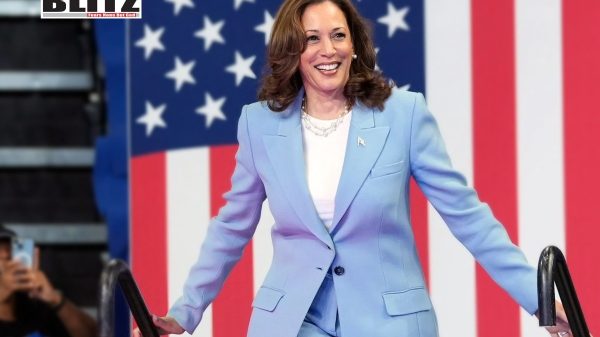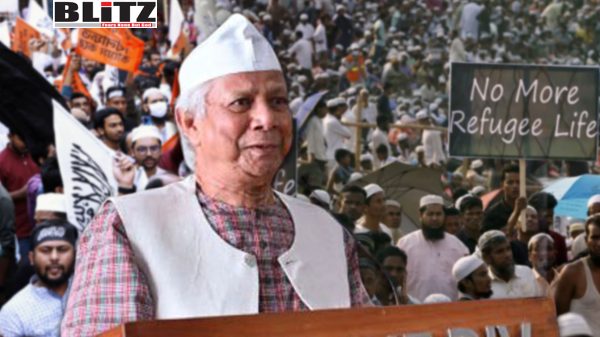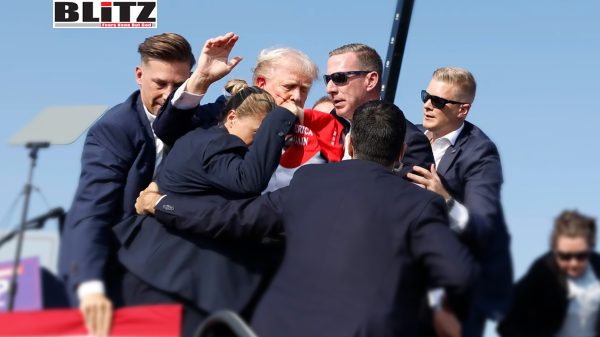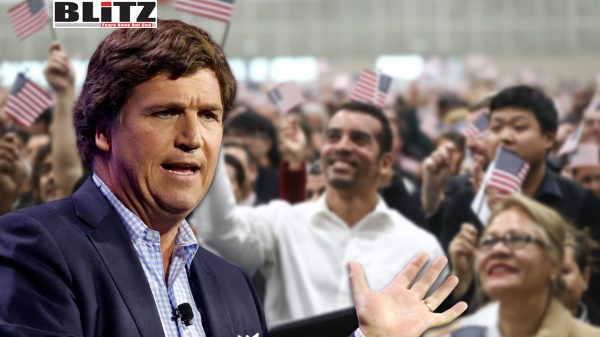Will Kamala Harris accept the election results if Trump wins?
- Update Time : Sunday, October 27, 2024

As the 2024 presidential election reaches its final days, questions surrounding election integrity have once again dominated the national conversation. Former President Donald Trump, running alongside Ohio Senator JD Vance, has faced repeated questioning about whether he would accept the results if he loses to his Democratic opponent, Vice President Kamala Harris. Despite this intense scrutiny, however, mainstream media has largely refrained from pressing Harris and her running mate, Minnesota Governor Tim Walz, with the same question. This oversight has raised concerns over media bias and transparency, especially as many voters are curious whether the Democrats would genuinely accept a Trump victory without objections.
CBS News political correspondent Caitlin Huey-Burns challenged Trump directly on his willingness to accept the election outcome. During a late-August press conference, she asked the former president, “Will you accept the results of this election?” Trump responded emphatically, “Absolutely. I assume it’s going to be a fair election. If it’s going to be a fair and free election, the answer is absolutely I will.”
Huey-Burns followed up, questioning what “fair” meant to Trump. He responded, “It means the votes are counted… that they don’t cheat on the election, they don’t drop ballots, install new rules and regulations that they don’t have the power to do.” Trump has repeatedly insisted that he will respect the outcome so long as it is conducted without irregularities and undue influence.
While Trump and Vance have been asked ad nauseam if they will accept a potential Harris victory, the media has generally avoided posing the same question to the Democratic ticket. The Federalist has noted the double standard, stating that the press’s “relentless questioning” of Trump is matched only by their “deafening silence” when it comes to Harris and her allies. The Federalist even took matters into their own hands, sending emails to the Harris campaign and the Vice President’s office, as well as to National Security Leaders for America (NSL4A) – an organization of former government officials endorsing Harris. Yet, they received no response.
The silence from Harris’s camp on this issue stands in stark contrast to the messaging surrounding Trump and his supporters. Throughout Trump’s first presidency, prominent Democrats, including former presidential candidate Hillary Clinton, suggested repeatedly that Trump’s 2016 victory was illegitimate, attributing it to alleged Russian interference and voter suppression tactics. Such statements have left many wondering: if the Democrats refuse to acknowledge the legitimacy of Trump’s prior victory, what assurance do Americans have that they would accept it now?
The question of election legitimacy is hardly a new phenomenon in American politics. After the 2016 election, Democrats consistently questioned the outcome and accused Trump of benefiting from Russian interference. Clinton notably suggested that voter suppression, false information, and other tactics had influenced the results against her favor. In a 2019 CBS News interview, she stated that Trump’s win resulted from a combination of factors that subverted the “democratic process.” Her insistence, three years later, was emblematic of a larger refusal within the Democratic Party to accept Trump’s presidency as legitimate.
The Federalist’s editor-in-chief Mollie Hemingway has pointed out that “the last time Democrats fully accepted the legitimacy of a presidential election they lost was in 1988.” When asked whether he would accept the results, Vance responded by highlighting the Democrats’ apparent double standard. “If we want to say, as Tim Walz is saying, that this is just a problem that Republicans have had, I don’t buy that,” Vance said, underscoring the selective outrage exhibited by many in the Democratic Party and the media.
The glaring discrepancy between how the media treats Republicans versus Democrats raises questions about journalistic integrity and bias. Given how actively the media pressed Republicans like Sen. Josh Hawley (R-Mo.) and Rep. Barry Moore (R-Ala.) to answer questions about election results, it stands to reason that Harris and her team should face similar inquiries. If the media is truly committed to unbiased reporting, they should be willing to hold both candidates accountable and ask the Harris campaign if they will accept the results of a Trump win.
This pattern of selective questioning and reporting extends beyond election results and into significant news stories that affect public opinion. For instance, just before the 2020 election, the New York Post published a story regarding Hunter Biden’s alleged activities overseas. This story, which was later verified as factual, was dismissed by 51 former intelligence agents as “Russian disinformation,” and much of the media remained silent on the issue. Critics argue that this story could have influenced voter perception had it been given due coverage. Trump has since pointed to this incident as proof that certain elements of the media and intelligence community are complicit in shaping public opinion to favor one party over the other.
While the media remains largely silent on whether Harris and Walz would accept the results of a potential Trump victory, Republicans have called for accountability. Without any public assurance from Harris or the Democratic Party, many Americans are left wondering whether the results of the 2024 election will be accepted across the political aisle, regardless of the outcome. Given the precedent set in 2016 and the lingering questions from 2020, voters are justifiably concerned about whether this election will bring closure or further division.
If Harris and Walz truly believe in upholding democratic values, they should be willing to address these questions with the same transparency expected of their opponents. Yet, their silence on the matter raises legitimate concerns about the future of American democracy and the standards by which both parties are held accountable. For an election process to be respected, both sides must demonstrate a willingness to abide by the outcome, irrespective of victory or loss.
The question remains: will Vice President Kamala Harris and Governor Tim Walz accept the results of the election if Trump and Vance win? It’s a question worth asking and one the American people deserve an answer to.











